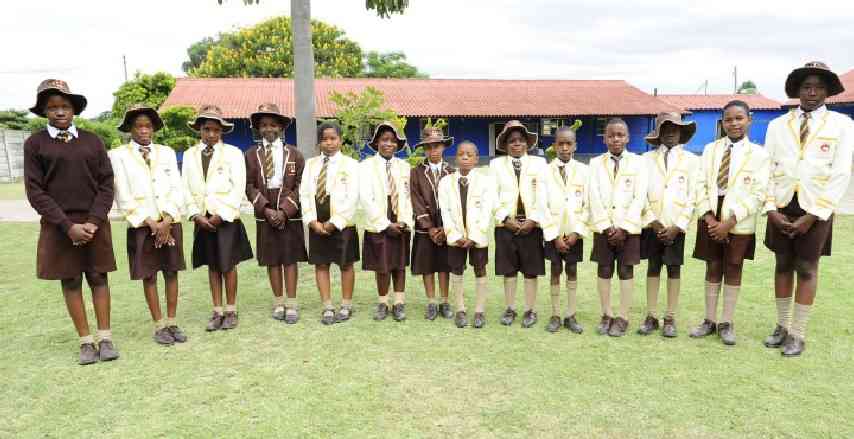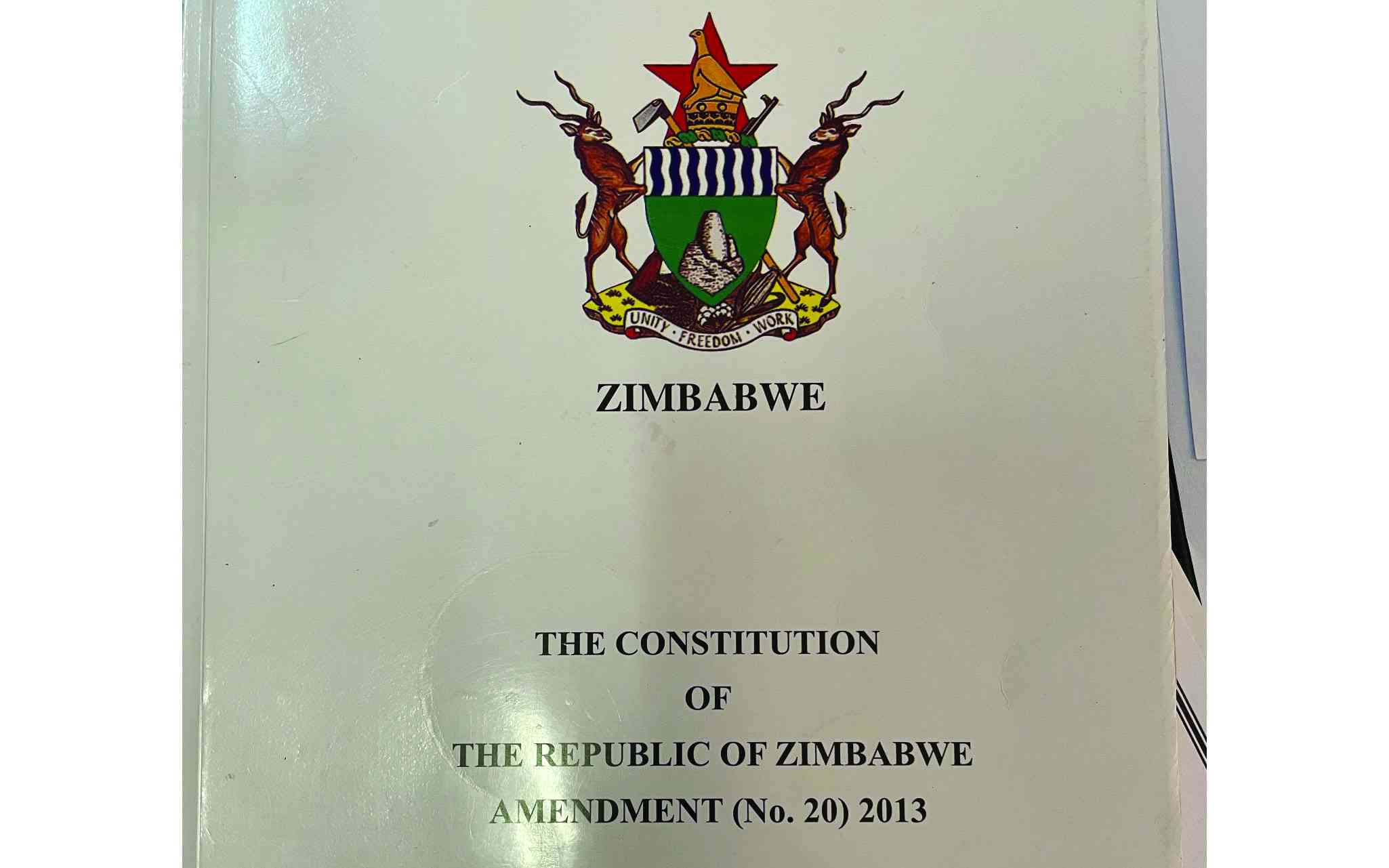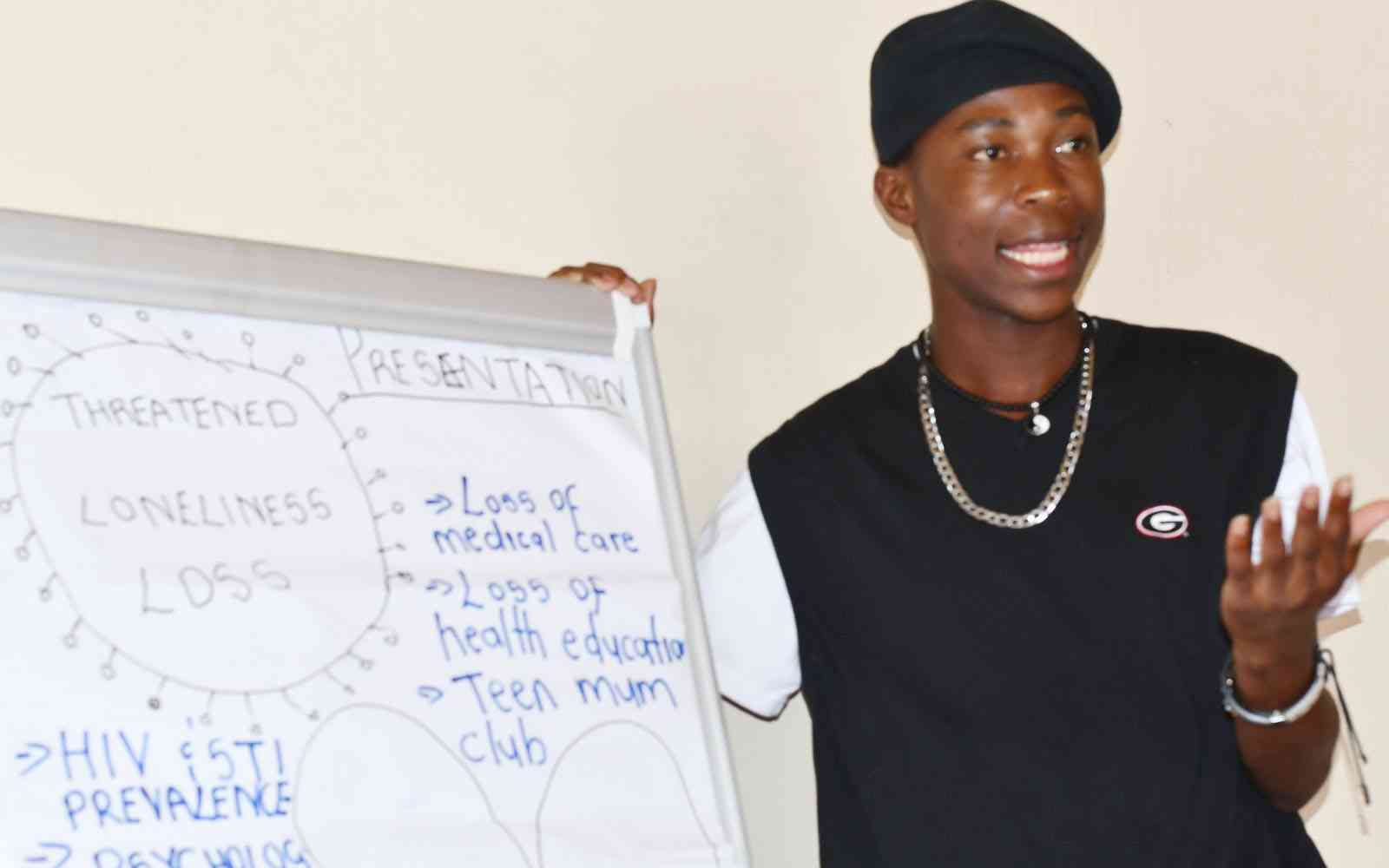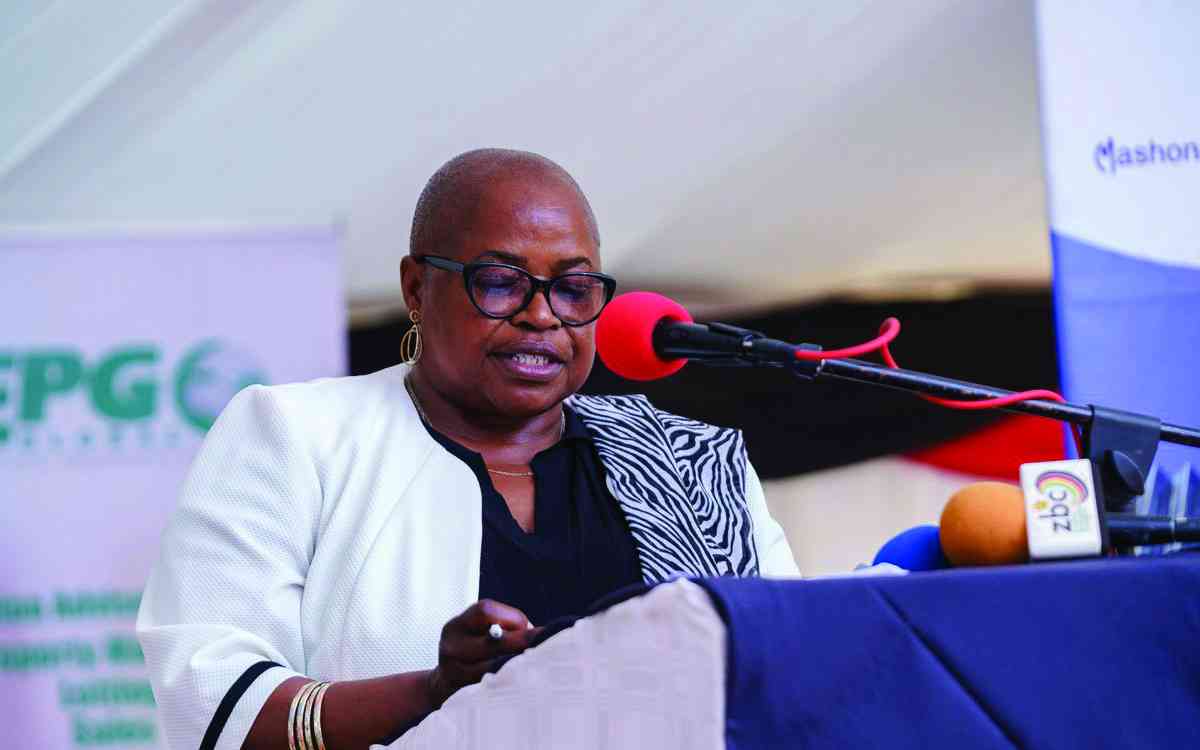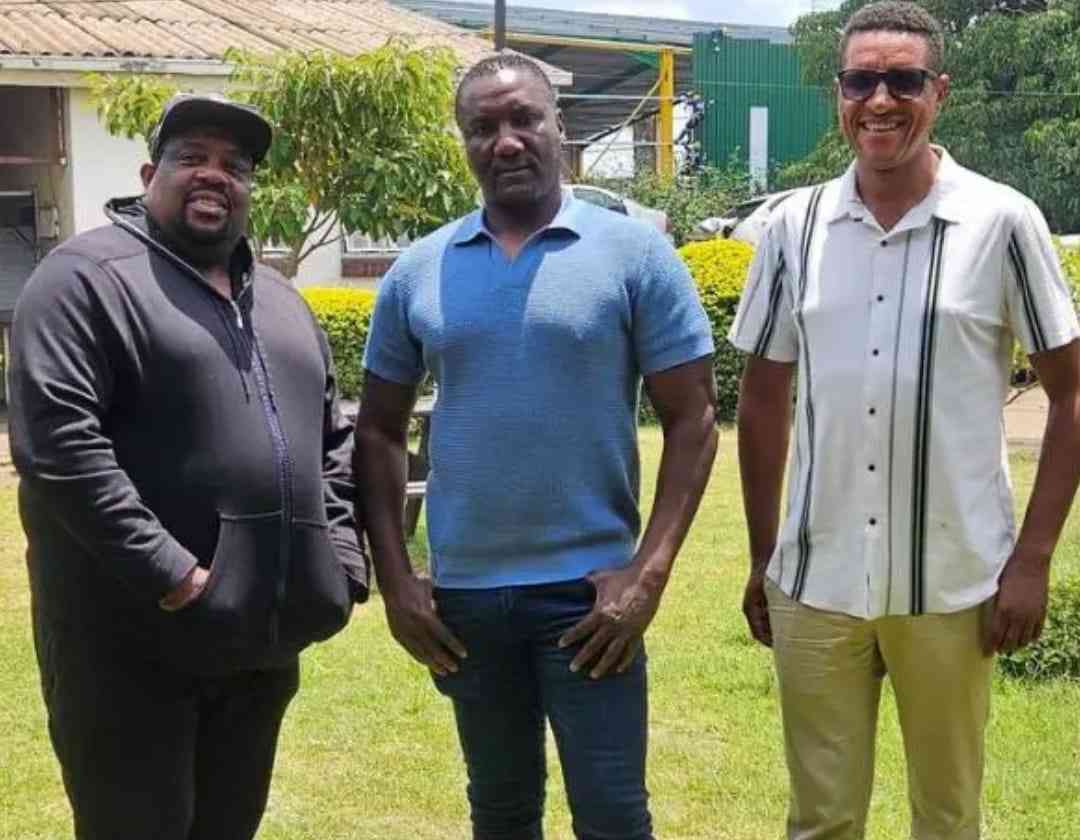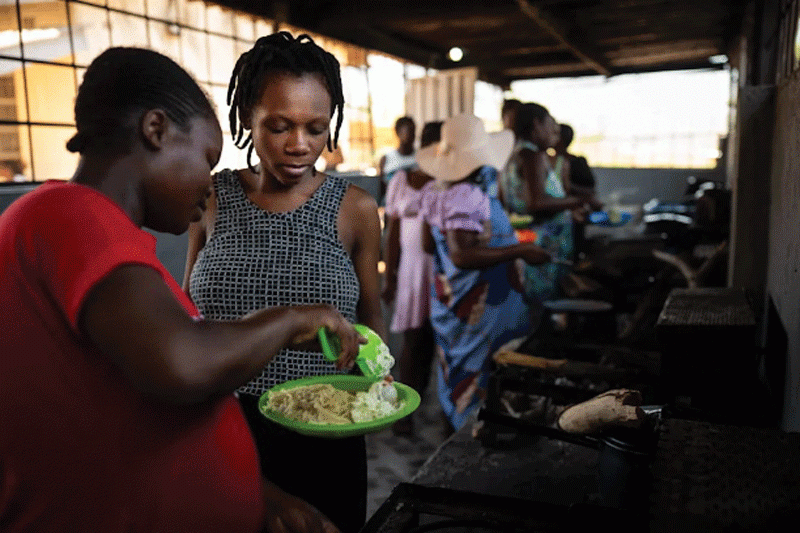
The expecting mothers ushered their roommate Tinashe Mawondo to the hospital at Old Mutare Mission centre, mere paces from a ward where the pregnant women reside.
The group of 10 women surrounded Mawondo to pray for her and then picked up her belongings and sent her off to new beginnings. Those 10 other women will trace the same journey in a matter of weeks — many are due in mid-November.
“It’s a very friendly environment,” Charity Chimanimani, an expecting mother, said in an interview in Shona. “We have taught each other unity and to give each other kind words.”
The women cook for one another and help teach each other sewing. They don’t pay a cent for lodging or food.
The ward for expecting mothers is the latest addition to the Old Mutare Mission, a nexus of United Methodist Church ministries that also include the hospital, a church, two schools and a children’s home.
The campus is sacred not just for its ability to serve many different community needs, but because it’s the site of United Methodism’s founding in Zimbabwe 128 years ago.
“It tells people what the UMC is all about,” reverend Tadeus Mwadiwa, the head administrator for Old Mutare Mission, said. “People want to identify with such truths.”
But a costly splintering in the historically Nashville-based UMC has shaken that confidence in one of the most influential Protestant bodies worldwide.
- Mufudzi Wakanaka strikes right chord
- Celebrating the “legend” of Harare MUMC choir
- Mufudzi Wakanaka strikes right chord
- Celebrating the “legend” of Harare MUMC choir
Keep Reading
An exodus of churches in the US and parts of Africa, fuelled by debates over LGBTQ+ rights, upended revenue projections. Likely, it will mean diminished investment in ministries across the globe.
So far, the Old Mutare Mission has weathered the storm.
“The United Methodist Church is not going to die here,” Mwadiwa said.
The splintering in the denomination is just the latest obstacle for United Methodism in Zimbabwe, and that it’s managed to overcome.
Before, the church suffered under the cruel apartheid regime of former Southern Rhodesia prime minister Ian Smith.
The United Methodist bishop back then mobilised rank-and-file parishioners to resist Smith’s government and support the Black nationalist movement that ultimately liberated Zimbabwe.
This legacy of the church advocating for liberation for Black Africans, and building institutions around that vision, has laid the groundwork for yet another turning point.
The UMC just ratified a landmark restructuring that gives more autonomy to United Methodists outside the U.S.
The restructuring, known as regionalisation, raises a deeply existential question about balancing different identities.
In Zimbabwe, that question is about what it means to be a Zimbabwean United Methodist, an African United Methodist, and a global United Methodist all at the same time.
Many have described this moment as the “decolonising” of the UMC.
“When the missionary came, they said there is a Christian way of life, which meant you had to separate (from) everything,” Angolan bishop reverend Gaspar João Domingos said in an interview. “So, here in Africa with all the traditions, many things we put aside because we wanted to be a Christian.”
Domingos is chancellor for Africa University, the UMC’s flagship college on the continent in Mutare, Zimbabwe — just across the valley from Old Mutare Mission.
At Africa University, students from 30-plus African nations are preparing for leadership in their respective countries and are exposed to a broader pan-African identity.
“Everything is changing now,” Domingos said. “Now, we are rising.”
The very existence of Africa University and the Old Mutare Mission, in their present form today as institutions serving Black Africans, was at one point a privilege.
At the Old Mutare Mission hospital on October 29, at least 50 patients are waiting to meet with one of only two doctors on staff. The facility is the only one of its kind within a 100-kilometre radius, doctor Evans Matiki said.
Matiki and his colleague tend to ailments that range from pediatric infections to trauma victims who suffered an accident working in nearby mines. They deliver about 150 babies per month.
Meanwhile, the nearby children’s home is sometimes the only place that will take abandoned children. A state agency has dropped off children at the Old Mutare Mission gates before, Mwadiwa said.
Each residence at the children’s home is supervised by an older woman, called a “mother.”
The residences possess two bedrooms with bunks, a living room with a TV and a kitchen. Many of the children help with maintenance at a nearby farm, which produces their food.
But 56 years ago, this very same property was confined to Southern Rhodesia’s white minority population.
A 1969 law under Smith’s government, called the Land Tenure Act, literally halved the country’s land mass and divided the property along racial lines.
Black residents’ physical movements were confined to their half. In June 1970, United Methodists began to fight back.
They gathered at this very same campus, the Old Mutare Mission, and decided to endorse a statement that said the Land Tenure Act “cannot be reconciled with the Christian Faith.” Later, Smith’s government made exceptions for religious organidations.
The late Zimbabwe bishop reverend Abel T. Muzorewa, who organised the June 1970 gathering, recounted how the event was a turning point for the church’s role in advocating for Zimbabwe’s liberation.
“Some denominations and individual church leaders still believe that the liberation struggle in Zimbabwe is none of the Church’s business. I thank God that such people are in a negligible minority,” Muzorewa said in his autobiography. “Some of these same critics do not believe in the Africanisation of the church. The predominant spirit of our people, however, sees the hand of God in our liberation struggle.”
Muzorewa, the first black Zimbabwean to serve as bishop for the UMC in Zimbabwe, later became the longtime executive for a coalition group representing several black nationalist parties that fought for Zimbabwe’s independence.
He eventually served as prime minister for a brief stint during an interim government that preceded Zimbabwe’s full independence.
The Murewa High School students’ hype during an October 27 chapel resembled more closely the enthusiasm of a pep rally for homecoming.
Their applause, cheering and yipping boomed throughout a cavernous sanctuary, part of the UMC’s Murewa Centre Mission in a remote commerce hub located 90 kilometres from Harare. Hundreds of adolescents appeared receptive, excited even, to listen to chaplain reverend Barnabas Chikunya preach on, “if you encounter Christ, you will never be the same.”
In interviews after chapel ended, students recited core tenets of United Methodist belief. For student Charlaine Charuma, pastoral staff on campus help her mature “not only spiritually but also emotionally,” she said. “Sometimes we do bad things unfortunately and they remind us how to humble ourselves and to live in community.”
As students filter to class from chapel, with their chairs in tow, they pass signs that remind them “say no to drugs,” “both genders are equal,” and “don’t marry them.”
The last message is a reference to a practice that’s common in some parts of Zimbabwean society in which young women or teenage girls are married and soon after are rearing children.
Deputy head of school George Marvanyka said a top priority is fully digitising the campus, meaning it’s equipping each student to use computers for class work.
Plaques on many buildings that commemorate dedications by former Zimbabwe bishop reverend Eben K. Nhiwatiwa are visible reminders of the UMC’s role in civic life following Zimbabwe’s independence.
Prior to Smith’s regime and its crackdown on religious schooling, Muzorewa said in his autobiography that “not only did the church provide the schooling for future Zimbabwean nationalists, but also it gave significant opportunities for leadership.”
Muzorewa took steps toward reviving this potential during the end of his tenure, most notably when he donated land in Mutare to establish Africa University.
But it was during Nhiwatiwa’s leadership, starting in 2004 and ending in March 2025 with his retirement, that these institutions expanded.
Today, the UMC operates 37 schools and 15 hospitals or health clinics, according to an analysis of church records. Nhiwatiwa declined an interview request, citing his inactive status in denomination leadership.
But what many saw as Nhiwatiwa’s praiseworthy relentlessness, reverend Forbes Matonga called it “ruthlessness.”
“For me, you can’t say he’s a hero. He’s not,” Matonga said in an interview. Matonga unsuccessfully ran against Nhiwatiwa for bishop in 2004, and ever since was an antagonist to the former bishop as part of a larger fight across the UMC.
Matonga deepened alliances with a well-resourced traditionalist movement that fought to uphold policies restricting LGBTQ+ rights in the church.
This group over time criticised many United Methodist bishops, Nhiwatiwa included, as institutionalists who made compromises to accommodate the denomination’s progressive wing.
“Bishop Nhiwatiwa and his accomplices were decimating the African voice,” Matonga said. “Actually, he is one of the persons who left the church in this mess.”
Matonga and his allies in other African nations increasingly viewed United Methodism as antithetical to their religious convictions and their African identity.
Matonga and other popular traditionalist voices in Liberia and Nigeria have since left the UMC and serve in leadership roles for the Global Methodist Church.
“For me back then the church had no problem…it was difference with individuals running the church and not the church itself,” Matonga said in an interview.
“But this time around, it is the United Methodist Church itself that has changed. It is the United Methodist Church that is wrong.”
At an October 25 gathering for the UMC Zimbabwe East Annual Conference, delegates voted on whether to ratify regionalisation, affirmed a report for a new strategic plan, and learned about Zimbabwe bishop reverend Gift K. Machinga’s choices for new executive staff to serve on his cabinet.
During a ceremony announcing staff changes, Machinga dramatically unveiled each of the new cabinet members and to great fanfare.
The person whom Machinga just named proceeded to the front, but with three to four of their peers dragging them as if the news shocked them into paralysis.
The sheer excitement was a vote of confidence in Machinga’s leadership, which delegates expressed other moments that day. “We’ve been praying…but with this report, that mission has been accomplished,” a delegate said from the floor. “I’m quite impressed, we’re going somewhere,” another delegate said.
But it could have gone a different direction.
In March, Matonga ran against Machinga for bishop and if he succeeded, would have tried to lead the whole UMC in Zimbabwe out of the denomination.
The same legislative manoeuvre succeeded in Côte d'Ivoire, and a similar attempt in Liberia failed.
Matonga joined the Global Methodist Church soon after losing the election to Machinga.
Since then, he said 60 clergy and 100 congregations have joined the breakaway group.
Unlike their counterparts in Liberia or Nigeria, Matonga said he won’t try to wrest control of United Methodist-owned assets.
“No, we are only taking people,” Matonga said.
Machinga was not available for an interview with The Tennessean but responded to a request for comment. “What was expected to be a great exodus turned into a testimony of God’s sustaining power for the remnant stayed, and the Church remained strong,” the bishop said in a statement.
Yet, the new administration faces an even steeper challenge of financial self-sustainability.
There is less annual revenue amid an economic downturn, plus funding for ministries across the world is less predictable as UMC general agencies struggle with budget cuts. -The Tennessean

